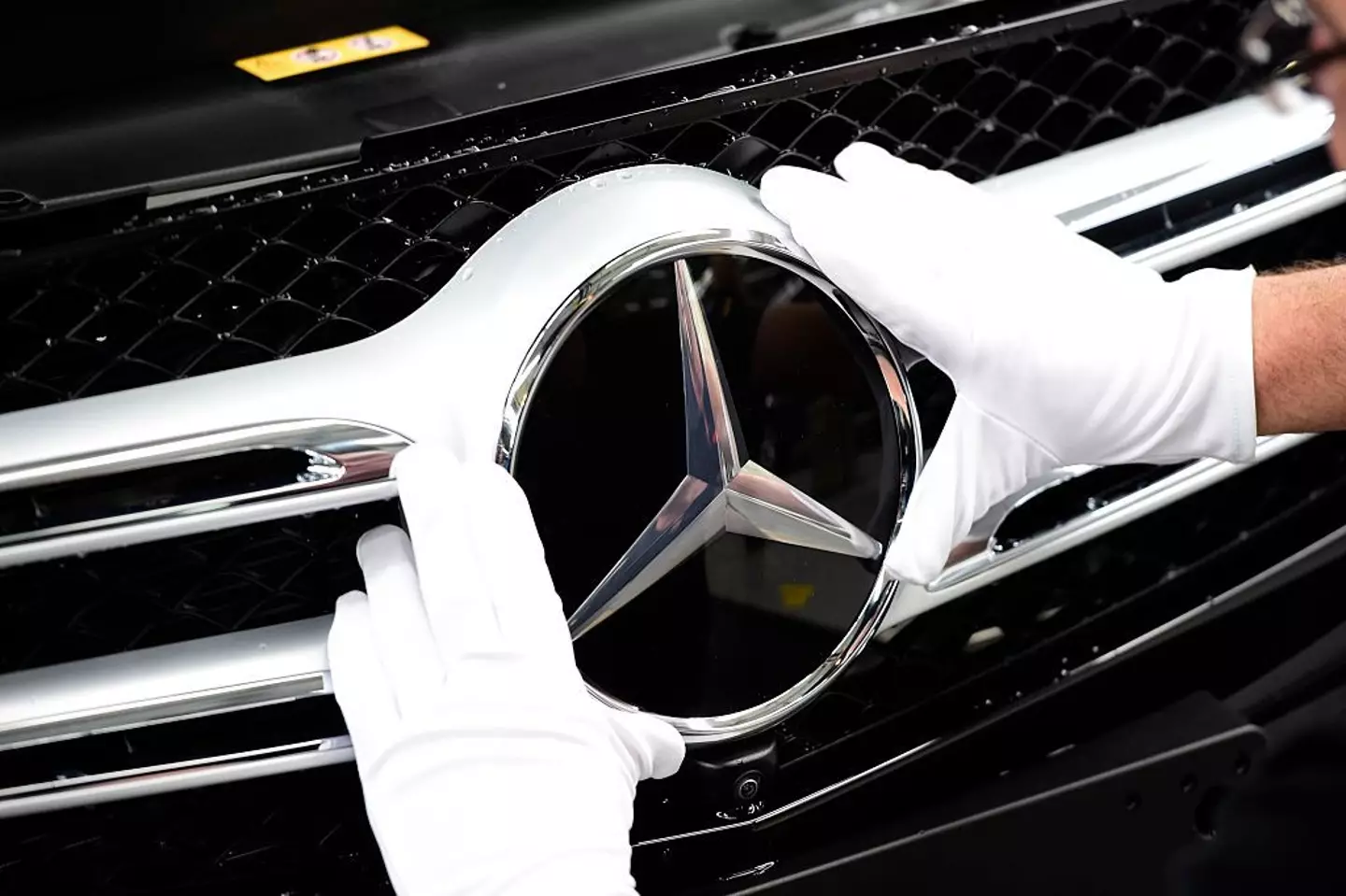You’ve likely been pronouncing Mercedes all your life, convinced you’ve nailed it. But what if you’ve been saying it wrong this whole time? Mercedes-Benz is one of the most recognized luxury car brands in the world, yet many people are unaware they’re mispronouncing its name. From its origins in Germany to its global popularity, let’s uncover the correct pronunciation and the story behind this iconic name.
The History Behind the Mercedes Name

Mercedes-Benz has been a staple in the luxury automotive world for nearly a century. The company was officially established in 1926 by Karl Benz, Gottlieb Daimler, Wilhelm Maybach, and Emil Jellinek. The name “Mercedes” actually has a heartwarming origin: Jellinek named the brand after his daughter, Mercedes Jellinek. Little did he know that this tribute would eventually become one of the world’s most prestigious and recognized car names.
But just because Mercedes-Benz is a household name doesn’t mean we’re all saying it right. Despite its global popularity, only a fraction of people actually pronounce it as intended by its German creators.
Why Mercedes is Often Mispronounced
As a German brand, Mercedes has a pronunciation rooted in the German language, which doesn’t always translate smoothly into English-speaking habits. While many people say “Mer-say-deez,” this isn’t quite how the name sounds in German. The German pronunciation places emphasis on different syllables and sounds, resulting in a name that might sound unfamiliar to English ears.
In a study conducted by Saga Car Insurance, Brits were asked to pronounce, spell, and even draw logos for 30 of the most popular car brands. Unsurprisingly, Mercedes was one of the names most participants struggled with. Only about 20% of those surveyed could pronounce it correctly, with most opting for the more familiar “Mer-say-deez.”
The Correct German Pronunciation of Mercedes
So, how should you actually say “Mercedes” to stay true to its German roots? According to native German speakers, the correct pronunciation sounds more like “Mertz-say-dez.” The emphasis on the first syllable and the unique “tz” sound distinguish it from the English interpretation. The “Mertz” pronunciation is what gives it that authentic German ring, which is often lost when it’s pronounced as “Mer-say-deez.”
It’s no surprise that people get confused. Even on social media, discussions abound with people debating the correct pronunciation. One Reddit user pointed out that Formula 1 commentators often say “Mersaydees,” while others argue for “Merseedays.” In reality, neither of these is the true German pronunciation, which is closer to “Mertz-say-dez.”
The CEO’s Pronunciation Stirred Up Controversy
Even within the company itself, the pronunciation can vary. When Mercedes-Benz CEO Ola Källenius shared a video on social media explaining the story behind the brand’s name, his pronunciation caught people’s attention. Some fans noted that even he didn’t stick to the strict German pronunciation, leaving many wondering if there’s a “right” way or if the brand’s name has simply evolved over time.
In the video, Källenius reiterated the story behind the name “Mercedes,” confirming it was inspired by Emil Jellinek’s daughter. But fans were quick to point out that he pronounced it more like “Mer-say-deez,” reflecting the brand’s global audience rather than strictly following the German articulation. This moment highlighted the flexibility in pronunciation that seems to come with the brand’s international fame.
Brand Recognition Beyond Pronunciation

While pronunciation might be tricky, one thing is certain: Mercedes-Benz has nailed brand recognition. In Saga’s survey, Mercedes scored impressively high in terms of logo recognition. The brand’s iconic three-pointed star, which represents the company’s ambition to dominate land, sea, and air, is one of the most recognizable logos worldwide.
According to the survey, 50% of participants could accurately recall the logo, and an impressive 88% were able to recreate it from memory. While people might stumble on the pronunciation, they have no trouble identifying the brand’s distinct symbol or spelling its name correctly. In fact, 83% of participants were able to spell Mercedes-Benz without error, proving that its impact transcends pronunciation challenges.
Why Mercedes Isn’t Alone in Pronunciation Struggles
Mercedes isn’t the only car brand with a name that gets mispronounced. Many German automotive brands face similar issues, including Porsche (“Por-sha”), Audi (“Ow-dee”), and BMW (in German, pronounced “Bay Em Vay”). English speakers often interpret these names based on phonetics rather than cultural accuracy, leading to a variety of pronunciations.
For Mercedes, the pronunciation challenge highlights how global brands adapt to different languages and cultures. In English-speaking countries, “Mer-say-deez” has become widely accepted, even if it’s not technically correct. As with many international brands, the name takes on a life of its own outside of its home country.
Should You Correct Your Pronunciation?
Mercedes-Benz CEO Ola Källenius shares how the name 'Mercedes' came about. pic.twitter.com/h7xh29lYv3
— Historic Vids (@historyinmemes) June 12, 2024
Given that even the CEO has adopted a more globalized pronunciation, it’s clear that Mercedes-Benz is open to interpretation. But if you want to sound like a true connoisseur or impress your German friends, embracing “Mertz-say-dez” is the way to go. Language experts say that it’s always worth learning the original pronunciation of names, especially when they carry cultural or historical significance.
However, if you’re comfortable with “Mer-say-deez,” you’re far from alone. This version has become so universally accepted that it’s unlikely to raise eyebrows. Mercedes-Benz has become such a familiar name worldwide that slight pronunciation variations have become part of its charm.
Conclusion: A Name That Transcends Pronunciation
Mercedes-Benz’s name carries a rich history, from its German roots to its global status as a symbol of luxury and performance. While the authentic German pronunciation might be “Mertz-say-dez,” the brand has adapted to a world where “Mer-say-deez” has become the norm. Whether you choose the German way or the globalized version, what’s undeniable is Mercedes-Benz’s impact on automotive culture and brand recognition.
So, the next time you mention Mercedes, you can try the authentic pronunciation—or stick with what feels natural. After all, part of Mercedes-Benz’s allure is its universal appeal, proving that a name can transcend pronunciation and still be iconic.


